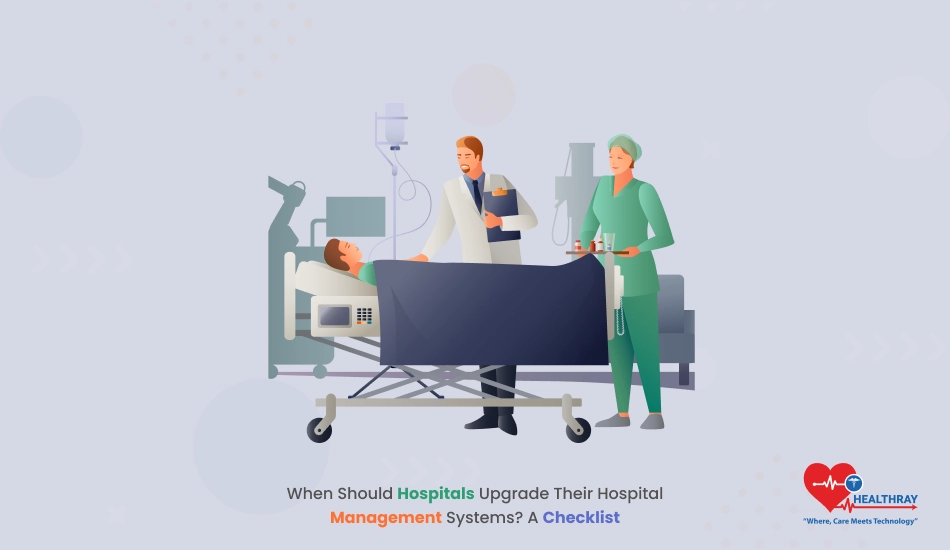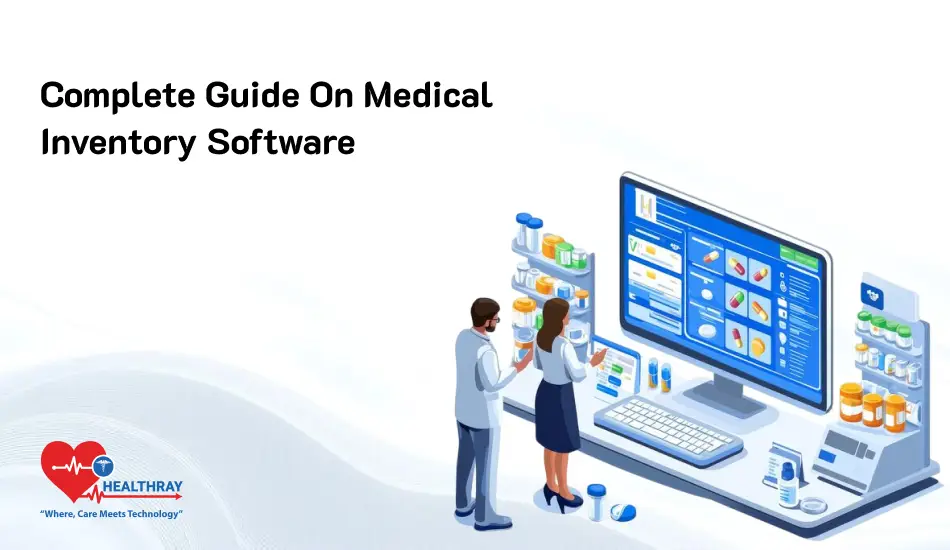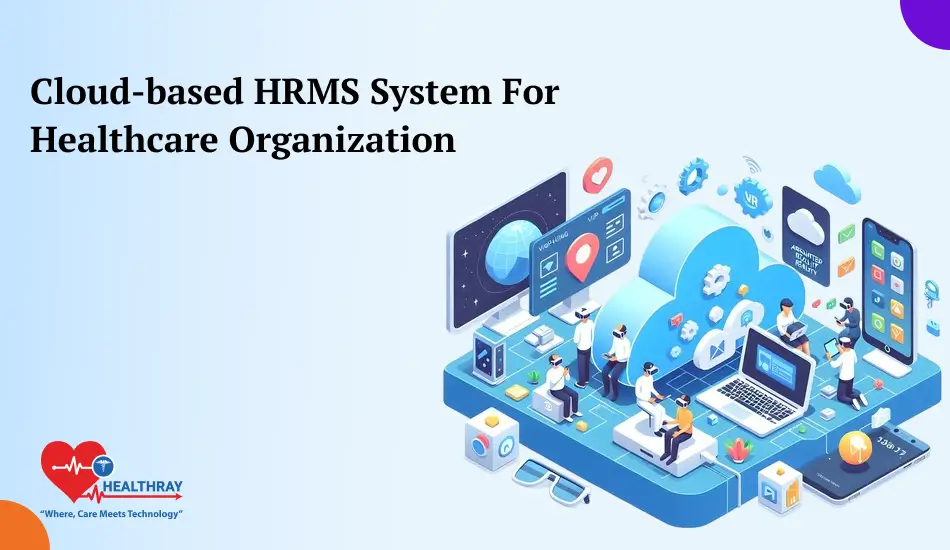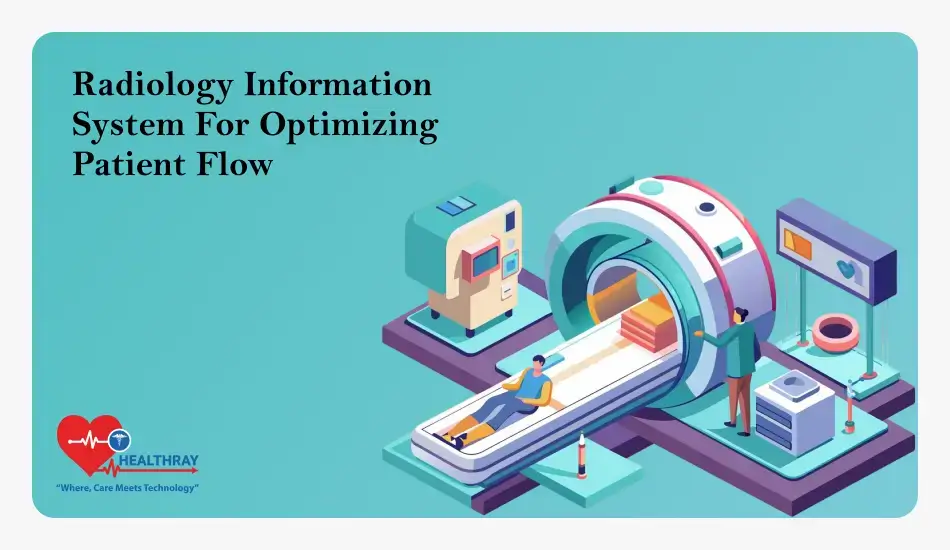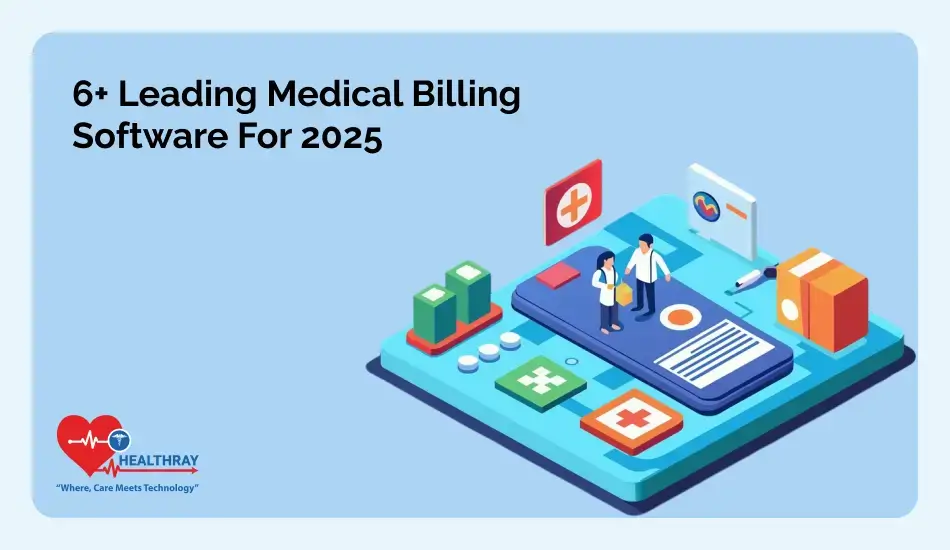Quick Summary
Hospital management systems can be an excellent asset for your healthcare organization. Hence, keeping it up-to-date is necessary to maintain your organization’s management processes. Do you want to know when and how to upgrade your hospital management system? Read the entire text.
Introduction
As per OECD recent data there are only 0.9 doctors per 1,000 people. Hence hospital owners, operators, and chairpersons must ensure that assets and medical bills are distributed as efficiently as possible throughout the patient’s lifetime. It is because medical equipment at the hospital cannot be quickly bought, or the number of specialists graduating each year increases.
A clinic, lab, pharmacy, or other healthcare facility can treat a broader patient population and manage its assets more successfully using hospital management systems.
One vital way to address the issue may be implementing and updating a hospital management system. In any case, the Standish Group’s statistics show that over 20% of IT activities in healthcare organizations are considered total failures.
Hence, this speedy and easy-to-use checklist will help medical professionals at your hospital or medical facility. These steps can increase operational efficiency and the probability of successfully implementing the hospital management system.
Why are hospital management systems important?
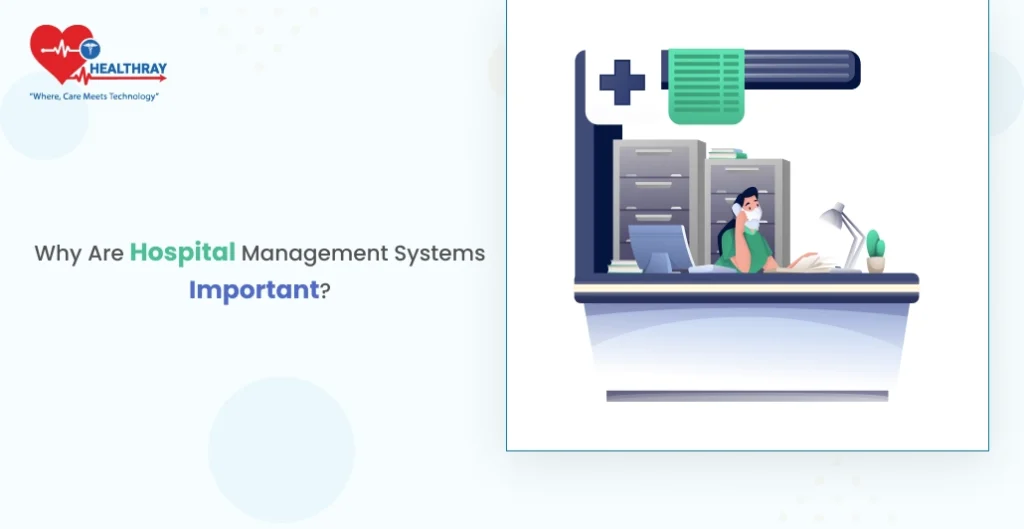
Hospital management systems have been used lately for a very long time. Since using it, hospital operations and practice management software have grown and become more tasks than ever. It is an exceptional software that can contribute heavily to daily tasks. Many hospitals employ this software nowadays for the betterment of their healthcare institution. A hospital that provides healthcare services including iv infusion chairs and has the best hospital management software may have issues if it is not used correctly and is not up-to-date. It can be beneficial in carrying out tasks such as
- digital documents and demographics
- medical tasks
- legal compliance
- administrative tasks
- healthcare performance
- patient engagement data
A hospital management system helps support the healthcare systems’ management and improvement of the patient care process. It can also help healthcare providers optimize how resources are spent. And you might know how crucial this factor is in the modern healthcare industry. Most hospitals these days use hospital management systems for patient care and hospitality.
Hospital Management Software (HMS) is fundamental for healthcare businesses because it provides benefits like better patient care, patient outcomes, lower costs, more efficiency, better information security, hospital readmissions, and automated medical records administration. By combining AI, IoT, VR, AR, and ML advances, HMS ensures patient delight, optimizes workflows, and changes ordinary healthcare practices for increased value and responsibility.
Why is it necessary to upgrade the hospital management system?
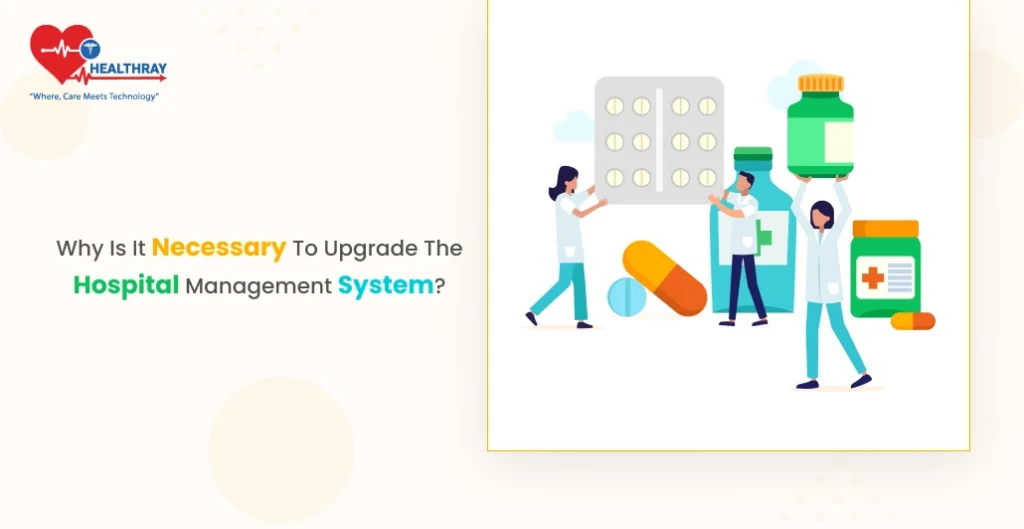
Data is at risk
Introducing the most recent clinic software update is fundamental if you need to avoid information loss or security breaches. The hazard of information loss may persist in older versions’ failure to maintain the same level of assurance.
It would help if you contacted the software seller who ensures data security to get the required updates.
Compliance with cybersecurity laws
Regarding security breaches, having the most recent updates for healthcare programs is vital. Careful medical specialists, healthcare professionals, and suppliers of digital healthcare solutions must guarantee that the program systems are updated on schedule.
Due to the most recent cybersecurity rules, healthcare suppliers are under pressure to protect patients’ sensitive patient information and electronic medical records and histories.
Missing out on the latest features
In addition to maintaining framework security, the EMR software updates offer enhanced functionality and modern features for a more helpful, smooth, and easy-to-use end-user experience. Electronic health records faculty must have more streamlined forms and expanded effectiveness to keep patient records and appointments.
Scalability
Utilizing web-based applications makes it simple to control and manage the activities centrally. The cloud-based HMS can accomplish some goals, including improved asset management, income cycle organization data management, integrated arrangements, unified bed management, control over spending, and better inventory management and organization.
A checklist for implementing hospital management system
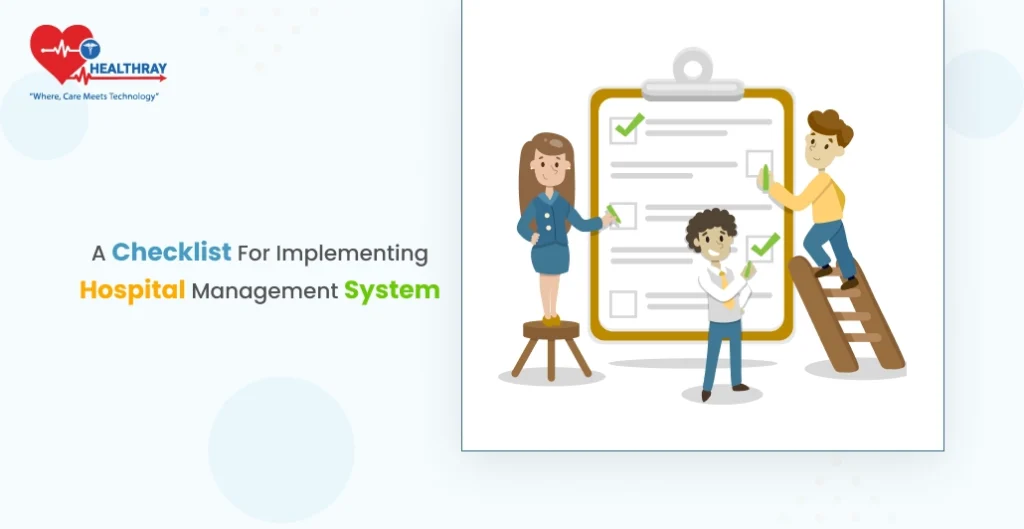
Conduct Need Analysis Throughout the Patient Lifecycle
Different modules and functions can be found in a hospital management systems (HMS) package. These may include payroll, HR, accounts, your laboratory tests and pharmacy management, outpatient management, appointment and scheduling, etc. Acquiring an extensive HMS of medical software can offer assistance in extending your medical practice more quickly. Still, it can also result in extra overhead costs from features or modules you do not use.
Begin the procedure by conducting a comprehensive need analysis throughout the patient’s life. Examine each step and assess any inefficiencies in the administrative, operational, and management procedures, starting when the patient contacts you and ending with the patient’s release from your hospital. Decide which features your HMS software must have based on this.
Onsite vs. Cloud Platforms
You would be mindful of the significant impacts of onsite hosting if you had experience working in medical centres with ERP systems. Onsite software systems are generally more secure. Even though this claim was true not long way back, following this advice would be very great. Cloud systems can secure your patient data and information amid storage and transport since they are encrypted.
Apart from the security aspect, another benefit of the cloud is that the service provider is responsible for upgrading and maintenance. Envision a situation where an onsite hospital information system malfunctions one day due to internal system overload. Because cloud platforms are designed to withstand abnormal spikes in user traffic, their uptime probabilities are comparatively greater. When contrasting an onsite system with cloud-based hospital management software, use this study.
Minimize Costs by Opting for a Free or Limited Trial
Sticking your toe in the pond before jumping to gauge the depth is beneficial. The same maxim holds when it comes to purchasing software for your clinic.
The Bayesian concept of probabilities has shaped human decision-making for thousands of years—the more accurate our data, the greater our ability to calculate probabilities. In conclusion, choosing to evaluate a hospital management system is a probabilistic process in which you attempt to decide whether or not medical data from the platform will be appropriate for your patient history and medical practice.
As a result, your healthcare management software needs to offer a limited-time or free trial. Ensure you provide it all the first time and request active input from the medical personnel and staff already using it daily. Should this streamline their work, you may view it as a profitable investment.
Comprehensive Solutions Would Not Need Frequent Updates
It would help if you started by evaluating the prospective hospital management, health systems, patient registration and the two critical factors. These two crucial factors are:
- How many updates are necessary
- How much will each update cost
Although there are no direct update costs, there are hidden costs for your facility management. Note that each time you update your system, you will face downtime. It can also cause inconvenience to the team as updates might put your data at risk. Also, undertaking unnecessary updates might slow down the system and hamper productivity.
Hence, one way to understand the risk of updates is to know how comprehensive the platform is. If it already has many features and functionalities, update it mainly around security and bug fixes. You can easily afford these updates as they will help your practice’s productivity.
Later on, if you decide to go with light HMS software, you can expand the system’s functionality. But make sure to consider the security aspects each time you update.
Ensure to Conduct a Cost-Benefit Analysis
An administrator or hospital owner can conduct a superficial analysis by looking at the price of a platform. Although this is one of the easiest analysis methods, you might need an accurate result or reality check. Many times, solutions might seem costlier to us, but they are still worth it.
For instance, revenue cycle management software seems costly. But time could have been used better than your time on mundane tasks. Hence, having revenue cycle management software is a benefit as it saves time, which is way more precious than money.
Therefore, assessing your hospital software needs can help you analyze whether it’s worth the cost. Let the hospital management software team dig into the more minor details. It will assist them in comprehending how each feature would benefit their company..
It will eventually help you understand the value the system delivers to your patient’s health records, patient portal, and the healthcare organization’s environment. Once you have reviewed all the software’s benefits, you can estimate the right price.
How Healthray’s Hospital management systems can help your organization stay updated?
Step towards digital era with our healthcare solution
Revamp your hospital facilities and embrace change for better healthcare management. Ease in managing and organizing large medical datasets leads to effective analysis. Seize the opportunity now!
Healthray is a reputed provider of hospital management software that ensures your software is up-to-date with the latest possible technology. We elevate the level of our HMS with the help of artificial intelligence to stay at the forefront of the industry.
From streamlining healthcare operations to optimizing administration efficiency, we can help you upgrade your institution to a greater height. Our standalone features can contribute to creating a smooth working culture in your healthcare organization.
Our software assists in measuring patient outcomes and providing a standard format for prescriptions as per healthcare guidelines. Our complete suite of HMS software might be a solution that can help your healthcare organization shine in the modern world. Our HMS solution can help you with
- appointment scheduling
- inventory management
- generating healthcare reports
- precise analytics
Conclusion
You must purchase hospital management software, but it isn’t easy, regardless of whether you are part of the administrative staff of a large healthcare facility or manage medical staff at a comparatively more minor practice. It necessitates a careful examination of numerous variables. You can conduct your study in great depth, but following this checklist can reduce the possibility that you will overlook some important details.
You might have seen a great checklist above that can help you understand how to assess the need to upgrade HMS. Go through the above points thoroughly to ensure you have guessed everything right before upgrading your software.
Speak to Healthray’s team to get your organization’s best hospital management system. We provide best-in-class, cost-effective administration operations and tested solutions that are up to date.
